
The Asian Institute of Technology (AIT), founded in 1959, is an international organization for higher education situated 40km north of Bangkok, Thailand. It specializes in engineering, advanced technologies, sustainable development, and management and planning. It aims to promote technological change and sustainable development in the Asia-Pacific region, through higher education, research, and outreach.

Karen Parfitt Hughes is the global vice chair of the public relations firm Burson-Marsteller. She served as the Under Secretary of State for Public Diplomacy and Public Affairs in the U.S. Department of State and as a counsellor to President George W. Bush.
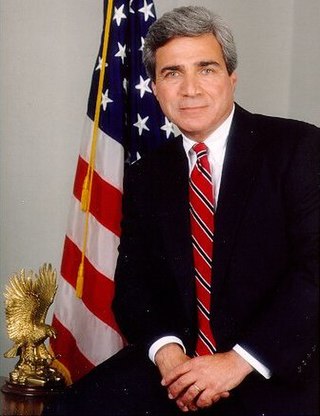
Philip Lader, is a former US Ambassador to the Court of St. James’s and former chairman of WPP plc, the global advertising/communications services firm.
Bradley Belt is an American businessman. He is the CEO of Palisades Capital and the managing director of the Milken Institute. He is vice chairman of Orchard Global Asset Management.

The Elliott School of International Affairs is the professional school of international relations, foreign policy, and international development of the George Washington University, in Washington, D.C. It is highly ranked in international affairs and is the largest school of international relations in the United States.
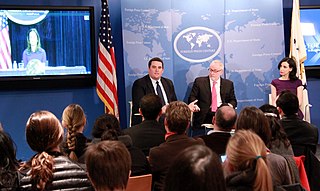
Digital diplomacy, also referred to as Digiplomacy and eDiplomacy, has been defined as the use of the Internet and new information communication technologies to help achieve diplomatic objectives. However, other definitions have also been proposed. The definition focuses on the interplay between internet and diplomacy, ranging from Internet driven-changes in the environment in which diplomacy is conducted to the emergence of new topics on diplomatic agendas such as cybersecurity, privacy and more, along with the use of internet tools to practice diplomacy.

Burson Cohn & Wolfe is a multinational public relations and communications firm, headquartered in New York City. In February 2018, parent WPP Group PLC announced that it had merged its subsidiaries Cohn & Wolfe with Burson-Marsteller. The combined agency is now known as Burson Cohn & Wolfe.

Gerald L. Curtis is an American academic, a political scientist interested in comparative politics, Japanese politics, and U.S.-Japan relations.
Robert Edwards Hunter is an American government employee and foreign policy expert who served as United States ambassador to NATO during the Clinton administration.
Peter Galbraith Kelly Sr. is an American lobbyist and political consultant. He received the 2015 Luminary Award in The World Affairs Council of CT.

The National Committee on United States China Relations (NCUSCR) is a nonprofit organization and advisory body founded in 1966 to encourage understanding and cooperation between the United States and China. Since 1966, the committee has conducted exchanges, educational, and policy activities in the areas of politics and security, education, governance and civil society, economic cooperation, media, and transnational issues, addressing these topics with respect to Mainland China, Hong Kong, and Taiwan.
LSE IDEAS is a foreign policy think tank at the London School of Economics and Political Science. IDEAS was founded as a think tank for Diplomacy and Strategy in February 2008, succeeding the Cold War Studies Centre founded in 2004. It is led by Professor Christopher Alden and Professor Michael Cox. LSE IDEAS has been ranked as the top European university-affiliated think tank and the number two university-affiliated think tank in the world.

Roman Popadiuk is an American diplomat of Ukrainian descent. Popadiuk served as the first United States Ambassador to Ukraine under George H. W. Bush, from 1992 to 1993. From 2015 until 2017, he was a principal at Morgan, Lewis & Bockius LLP's subsidiary Morgan Lewis Consulting, and prior to 2015 he was the principal at Bingham Consulting. Since late 2018 Popadiuk has been the president of the Diplomacy Center Foundation which oversees the development of the National Museum of American Diplomacy.
The Fletcher School of Law and Diplomacy is the graduate school of international affairs of Tufts University, in Medford, Massachusetts. Fletcher is one of America's oldest graduate schools of international relations and is well-ranked in its masters and doctoral programs. As of 2017, the student body numbered around 230, of whom 36 percent were international students from 70 countries, and around a quarter were U.S. minorities. The school's alumni network numbers over 9,500 in 160 countries, and includes foreign heads of state, ambassadors, diplomats, foreign ministers, high-ranking military officers, heads of nonprofit organizations, and corporate executives. It is consistently ranked as one of the world's top graduate schools for international relations.
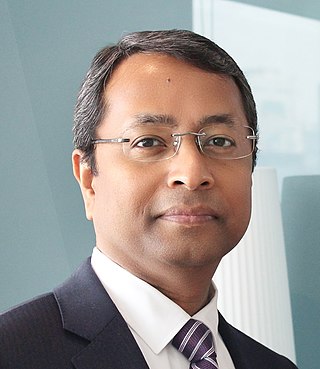
Sunil John is the founder of ASDA'A BCW and President - Middle East of BCW owned by the $20.7 billion WPP Group.

Robert Stephen "Bob" Leaf was an American public relations executive. He is best known for creating the international network of offices which made Burson-Marsteller the world's largest public relations firm in the 1980s, where he eventually rose to be international chairman. Debrett's have recognised him as one of Britain's 500 most influential people.
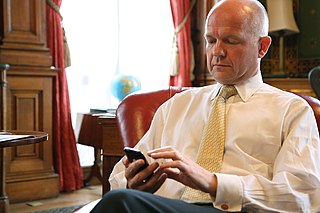
Twitter diplomacy, or Twiplomacy, is a form of digital diplomacy, refers to the practice of conducting public diplomacy using the social media platform X by heads of state and diplomats, as well as leaders of intergovernmental organizations (IGOs).

John W. Leslie, Jr., commonly known as Jack Leslie, is an American public relations executive, political consultant and international development activist. He is former chairman of Weber Shandwick, a global public relations firm, a role from which he retired in March 2022. President George W. Bush appointed him to the board of the U.S. African Development Foundation in 2003. In 2009, President Barack Obama appointed him chairman.
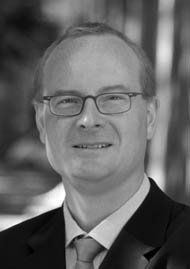
Martin Roll is a Danish author, brand strategist and management consultant. Roll appears regularly in global television and print media. He holds an MBA from INSEAD where he is a Distinguished Fellow and an Entrepreneur in Residence. Roll's first book, Asian Brand Strategy, was named one of the "Best Business Books: Marketing" in 2006 by Strategy+Business magazine. He is the founder CEO of Martin Roll Company, an advisory firm based in Singapore. He advises Fortune 500 companies, Asian firms, family-owned businesses and also served as a senior advisor to McKinsey & Company.
Mike Fernandez is a business executive who has led communications, marketing, government relations and sustainability for a number of large companies. Fernandez also served as the US CEO for two agencies, Burson-Marsteller and Llorente y Cuenca. He was a full-time professor of practice at Boston University and an adjunct professor at several universities. He currently is the senior vice president of public affairs, communications and sustainability at Enbridge which is headquartered in Calgary, AB, Canada.













